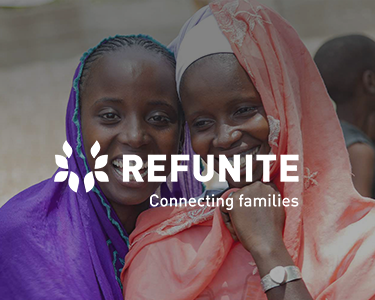In this Thursday, June 24, 2010 picture Rwandan President Paul Kagame greet supporters who waited hours to see him as he applied to run for president again in the Rwandan capital, Kigali. Last fall former President Bill Clinton presented Rwanda’s leader with a global citizen award and lauded him for freeing the minds of his people. Now as election day approaches, critics fear Paul Kagame’s government is instead smashing dissent.(AP Photo/Adam Hooper)
KAMPALA, Uganda — The Rwandan refugee was walking home one night when four men jumped him and put him in a stranglehold. He lay still, pretending to be dead as one attacker made a phone call and announced the hit had been carried out.
With his assailants just yards away, Mani Uwimana jumped up and fled, startling the attackers and becoming a survivor of what appears to be an assassination campaign targeting Rwandan dissidents at home and abroad.
International rights groups have condemned Rwanda in recent weeks for clamping down on dissent, curbing freedoms and silencing opponents in advance of the country’s August presidential election.
Among the apparent victims was a former senior Rwandan military commander who had a falling out with President Paul Kagame. Lt. Gen. Faustin Kayumba Nyamwasa was shot in the stomach outside his home in South Africa, and his wife blamed Kagame — an accusation the president denied. Nyamwasa survived the June 19 shooting.
A human rights report released this week said Rwanda’s Tutsi-led government is oppressing Hutus in neighboring Uganda and the ethnic divisions that sparked Rwanda’s 1994 genocide have re-emerged. At least 500,000 ethnic Tutsis and moderate Hutus were killed in the Hutu-led slaughter — violence that ended when a Tutsi-dominated militia headed by Kagame entered the country, causing droves of Hutus to flee.
Rwanda’s government has denied involvement in the recent attacks. Kagame, who is running for a second seven-year term, bristled at a news conference Monday over the allegations of repression and said the country is not experiencing any ethnic tension.
Uwimana, a Hutu who fled Rwanda two years ago, says he caught the attention of Rwandan authorities after criticizing them over human rights abuses.
On May 15, the 27-year-old said he was walking home from the roadside kiosk he operates selling soap and other toiletries outside Uganda’s capital, when he was jumped by four men who wrestled him to the ground.
“They squeezed my neck attempting to strangle me. I pretended that I was dead,” he said. “They moved a short distance from me and one of them made a phone call.”
Speaking in Rwanda’s Kinyarwanda language, the attacker reported that Uwimana was dead, and “they should send a vehicle to take away my dead body.”
That’s when Uwimana jumped up and ran for his life.
Other Hutu Rwandan refugees in Uganda say they live in fear of Kagame’s Tutsi-led government.
“Our lives are in danger,” said Hope Semukanya, one of some 18,000 Rwandans who live in Uganda. “We fear that we can be killed anytime by Rwandan spies.”
Police in Uganda told The Associated Press on Tuesday that the editor of an opposition Rwandan newspaper escaped an attack last week on the outskirts of the Ugandan capital, Kampala.
Uganda police spokeswoman Judith Nabakooba said police officers rescued Jean-Bosco Gasasira, who is now reportedly in hiding.
Six men confronted Gasasira, editor of the opposition Umuvugizi newspaper, on June 22, according to Timothy Mugabi, a friend of the victim. Gasasira ran to his house and called police, Mugabi said.
Rwanda’s ambassador to Uganda, Maj. Gen. Frank Mugambage, said it is “nonsense” to believe Rwandan authorities were behind the assault.
Two days after the attack on Gasasira, the deputy editor of Umuvugizi, Jean-Leonard Rugambage, was shot dead in Rwanda’s capital, Kigali.
Kagame said Monday he has ordered Rwanda’s police, intelligence agents and army to find the journalist’s killers. “We will not rest until we get to the bottom of this and make it clear to everyone,” he said.
Though Kagame faces little real opposition in the August election, Carina Tertsakian, a researcher at Human Rights Watch who specializes in Rwanda, said she believes it is possible the government was behind Rugambage’s slaying.
In a report released Monday, the International Refugee Rights Initiative and the Refugee Law Project said Rwanda is using the legacy of the genocide to repress Hutus. Refugees in Uganda are afraid to return home and some reported that Rwandan authorities were torturing, imprisoning and even killing Hutus, the report said.
“This situation threatens to shatter Rwanda’s outward peace and prosperity as the cycles of violence” based on ethnicity continue, it said.
Mugambage, the ambassador, dismissed the report as “hopeless and fabricated.” He said the research is not credible and is based on only a few interviews. The reports’ authors say they interviewed 102 refugees.
Straziuso reported from Nairobi, Kenya. Associated Press reporter Edmund Kagire contributed from Kigali, Rwanda.
Source: Associated Press
By Godfrey Olukya and Jason Straziuso



